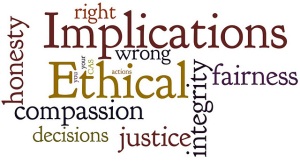After several dozen posts on social media eDiscovery, we are going to focus the next few weeks on the related issue of eDiscovery in the cloud. As we see it, despite the enormous cost benefits of the cloud,  concerns about the feasibility of eDiscovery and general search across an organization’s critical cloud-resident data has to some degree prevented broader adoption.
concerns about the feasibility of eDiscovery and general search across an organization’s critical cloud-resident data has to some degree prevented broader adoption.
The cloud means many things to many people, but I believe the real eDiscovery action (and pain point) is in Infrastructure as a Service (IaaS) cloud deployments (such as the Amazon cloud, Rackspace, or pure enterprise cloud providers such as Fujitsu). According to a recent PwC report, Cloud IaaS will account for 30% of IT expenditures by 2014. IaaS currently provides the means for organizations to aggressively store and virtualize their enterprise data and software, thus potentially spawning the same large data volumes and requiring the same critical search and eDiscovery requirements as traditional enterprise environments. Amazon Web Services, the leading IaaS cloud provider, reports in our discussions with them extensive customer eDiscovery requirements that are currently addressed by inefficient and manual means. So for purposes of this discussion, IaaS, which is essentially cloud for the enterprise and where there is a current significant eDiscovery challenge, is what we will focus on.
So if an organization maintains two terabytes of documents in the Amazon or Rackspace cloud, how do they quickly access, search, triage and collect that data in its existing cloud environment if a critical eDiscovery or compliance search requirement suddenly arises? This scenario is a current significant pain point for IaaS cloud. In such situations, the organization is typically resorting to one of two agonizingly inefficient processes. The first option involves shipping the provider hard drives for their IT staff to copy the data in bulk for download and having that data shipped back. Rackspace’s guidelines provide that a transfer of 2 terabytes of bulk files would cost over $10,000 in fees and require about four to six weeks. And then all the company gets is a full 2 terabyte duplicate of its data that still must be searched, processed and reviewed.
The other alternative is to slowly download the data through a secure file transfer protocol connection. However, even with a robust T2 line, it would take three to six weeks to transfer the two TBs, depending on how much dedicated bandwidth IT would be willing to dedicate to the exercise.
So what is needed is robust eDiscovery software that can truly support the IaaS cloud where the data resides without first requiring mass data export. We will discuss what that entails and the requirements of truly cloud capable eDiscovery software in our next post, so please stay tuned!



